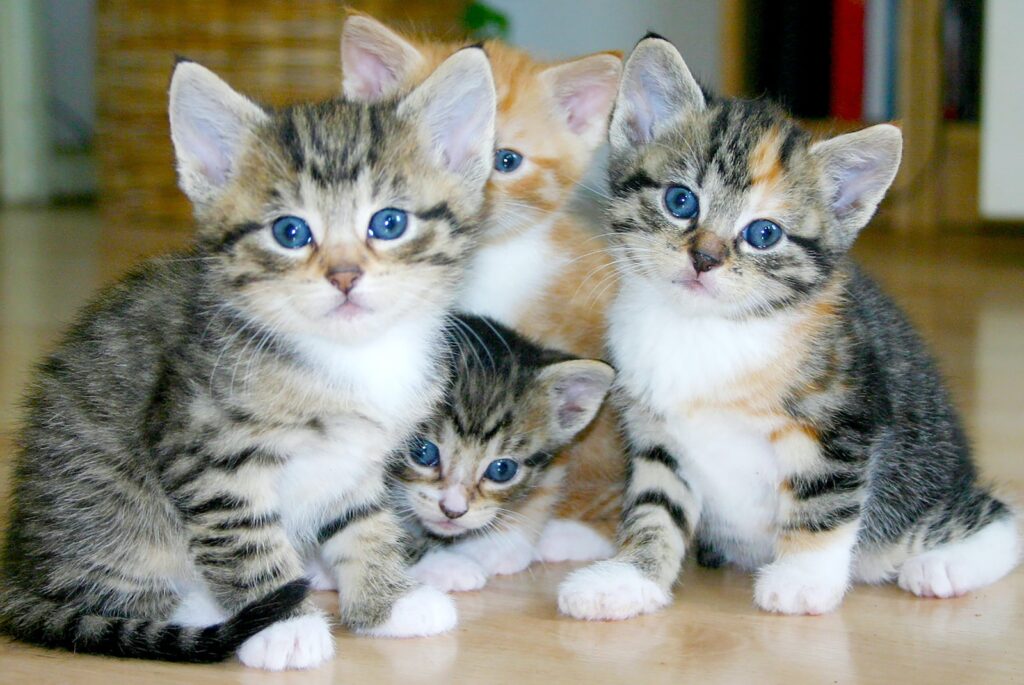Can Cats Eat Ginger? — Yes, They Can
Ginger is a safe and healthy spice that cats can consume without any major issues. While cats have different dietary needs compared to humans, ginger can still be a flavorful addition to their meals in moderation. Before incorporating ginger into your cat’s diet, it is important to consult with your veterinarian to ensure it is appropriate for your furry friend.
Can Kittens Eat Ginger?
It is advisable to avoid feeding ginger to kittens, as their digestive systems are still developing. Kittens have more sensitive stomachs and introducing ginger at a young age may lead to gastrointestinal issues. As kittens grow older and their bodies become stronger, ginger can be gradually introduced into their diet under the guidance of a veterinarian.
Things to consider when feeding ginger to kittens?
When considering introducing ginger to kittens, it’s crucial to monitor their response to this spice. Start with very small amounts and observe if they experience any adverse reactions such as nausea or diarrhea. If any negative symptoms occur, discontinue feeding ginger to your kittens immediately and consult your veterinarian for further advice.
Nutritional Benefits of Ginger for Cats — Why Ginger is Good for Cats?
Gastric Health
Ginger contains natural compounds that can aid in digestion and alleviate gastrointestinal issues in cats. It can help prevent and reduce instances of vomiting or indigestion, promoting overall gastric health. However, it is essential to note that ginger should not be used as a substitute for professional veterinary care in cases of chronic digestive problems.
Anti-Inflammatory Properties
Ginger possesses anti-inflammatory properties that can benefit cats suffering from arthritis or other inflammatory conditions. It may help reduce joint pain and swelling, enhancing your cat’s mobility and overall well-being. Nevertheless, it is crucial to consult with your veterinarian to determine the appropriate dosage and usage of ginger for your cat’s specific condition.
Antioxidant Effects
Ginger contains antioxidants that can combat oxidative stress and aid in boosting the immune system of cats. By including ginger in their diet, you can help strengthen their immune response and protect them against various illnesses and diseases.
Improved Blood Circulation
Regular consumption of ginger can contribute to improved blood circulation in cats. Enhanced blood flow promotes better oxygen and nutrient delivery throughout their bodies, ultimately benefiting their overall health and vitality.
Alleviates Nausea
Ginger is known for its ability to alleviate nausea and help cats overcome motion sickness. If your cat experiences car rides or other situations that cause them to feel queasy, a small amount of ginger can help ease their discomfort. However, it is crucial to consult with your veterinarian beforehand to determine the appropriate dosage for your cat.
Potential Allergies: Can Cats Be Allergic to Ginger?
While ginger is generally safe for cats, it is still important to be aware of potential allergies. Just like humans, cats can develop allergic reactions to certain foods, including ginger. It is essential to monitor your cat’s response after incorporating ginger into their diet. If you notice any signs of an allergic reaction, such as itching, swelling, or difficulty breathing, discontinue feeding them ginger and seek veterinary advice immediately.
Symptoms of Ginger Allergies in Cats
- Itching and Skin Irritation: Cats may exhibit excessive scratching, redness, or hives on their skin.
- Gastrointestinal Upset: Cats may experience vomiting, diarrhea, or stomach discomfort after consuming ginger.
- Respiratory Distress: Some cats may develop difficulty breathing, wheezing, or coughing if they are allergic to ginger.
What to Do If Your Cat Shows Symptoms?
- Discontinue Feeding Ginger: If your cat exhibits any symptoms of an allergic reaction, stop feeding them ginger immediately.
- Consult Your Veterinarian: Reach out to your veterinarian to seek guidance and determine the best course of action for your cat’s well-being.
- Monitor their Condition: Keep a close eye on your cat’s symptoms and provide any necessary treatment as recommended by your veterinarian.
Recommended Amount: How Much Ginger Can a Cat Consume?
When it comes to feeding ginger to cats, moderation is key. A small pinch of grated or powdered ginger is generally safe to include in your cat’s diet. However, it should not account for a significant portion of their food. Start with a tiny amount and gradually increase it over time, carefully monitoring their response and behavior. Consulting with your veterinarian regarding the appropriate quantity and frequency of ginger intake is always advisable.
Things to Consider When Feeding Ginger to Cats
While ginger can provide various health benefits to cats, it is crucial to consider a few factors when incorporating it into their diet:
- Always consult your veterinarian before introducing any new food to your cat’s diet.
- Avoid feeding ginger to cats with a history of gastrointestinal issues or hypersensitivity to spices.
- Ensure that the ginger is fresh, free from additives, and not processed with any harmful substances.
- Monitor your cat’s response to ginger and discontinue use if any adverse reactions occur.
How to Feed Ginger to Cats: A Quick Guide
Ginger can be fed to cats in various forms, making it convenient and enjoyable for them. Here are a few simple ways to introduce ginger into their diet:
Ginger-Infused Treats
Bake homemade cat treats with a hint of ginger flavor. Ensure the treats are specifically designed for cats and do not contain any harmful ingredients like chocolate or artificial sweeteners.
Ginger-Flavored Broth
Add a small amount of grated ginger to warm bone broth, creating a flavorful and soothing drink for your cat. This can be especially beneficial for cats who require increased hydration or have a decreased appetite.
Ginger-Spiced Meal Toppers
Sprinkle a small pinch of powdered ginger over your cat’s regular meals as a tasty and aromatic garnish. This can be an excellent way to introduce them to ginger’s flavor gradually.
Conclusion
In conclusion, ginger can be a safe and beneficial addition to a cat’s diet when used in moderation. It provides various health benefits such as aiding digestion, reducing inflammation, boosting the immune system, promoting better circulation, and alleviating nausea. However, it is crucial to consult with your veterinarian before introducing ginger to your cat’s meals. Always monitor their response and discontinue use if any adverse reactions occur. By following these guidelines, you can provide your feline companion with a flavorful and health-enhancing treat.






